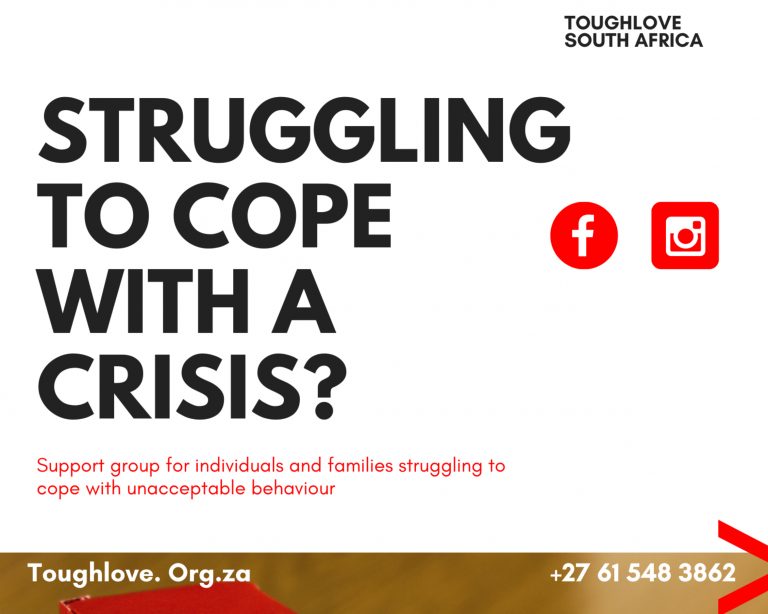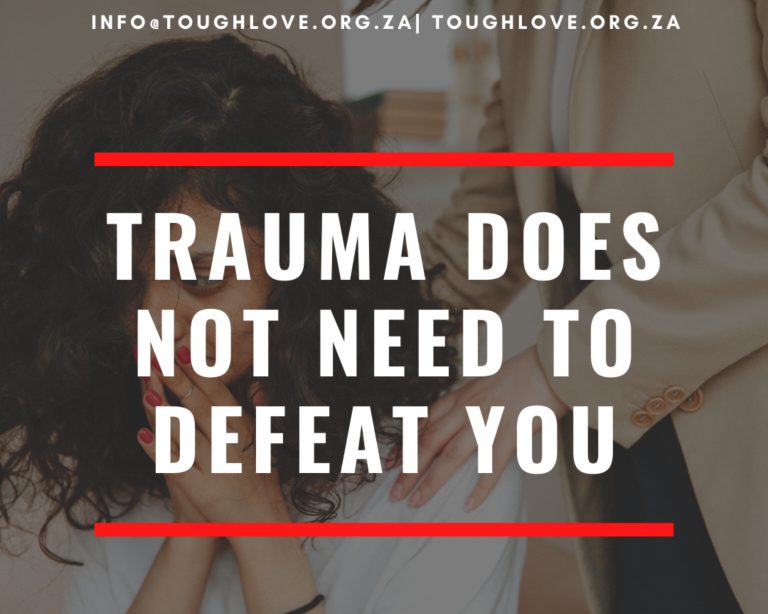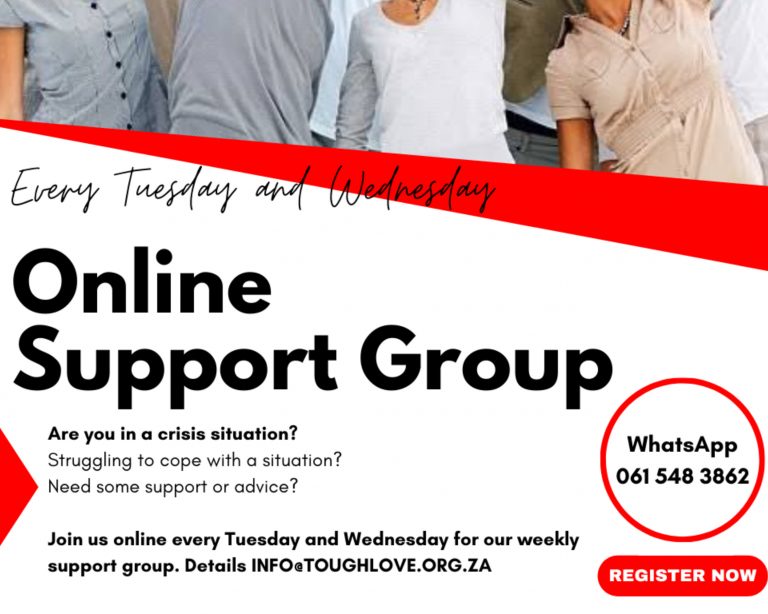We get to know ToughLove – an NPO aimed at addressing destructive behaviour
ToughLove came to life in the ’70s when David and Phyllis York from the United States underwent the trauma of having to deal with children who portrayed extreme destructive behaviour. Despite the couple being family therapists who previously helped other families and had experience in working with some of the biggest rehabs, it felt as though their hands were tied when it came to their own children. After undergoing every measure possible – taking their children for family therapy, counselling, enrolling them in private schools and being more permissive – these methods proved ineffective when their daughter was arrested for armed robbery. This was when they took a stand to not tolerate her behaviour any longer and show some tough love, and they asked others to intervene and keep them up to date on how she’s doing. Their plan was successful as their daughter’s behaviour improved. And so the ToughLove programme was founded. We sat down with Gordon Dewar from ToughLove SA to learn more about this impactful initiative.

Hello, Gordon! Please tell us how you got involved in ToughLove SA.
I joined the Boksburg ToughLove support group back in 2004 due to our son being a heroin addict. We attended the group for two years. In this time, I assisted in coordinating the group and shortly thereafter, in 2006, became a director
of ToughLove SA. I then took over the running of the national head office in 2008 due to my passion to be on the other end of the phone when somebody is desperate and looking for help.
How has ToughLove grown since it was started by the Yorks?
Today, there are registered ToughLove groups all over the United States, Canada, Brazil, Australia, Ireland, New Zealand and South Africa. The Yorks continue to work on new manuals, books and professional materials, and they continue to do personal appearances and workshops. They also train ToughLove representatives to spread the programme around the world. ToughLove SA was started in 1988 with only one group. In the late 2010s, ToughLove USA sold out to a group
called Stand Up Parenting, but South Africa and a few other countries decided to remain with the name ToughLove.
Can you tell us about the organisation, what they do and who they help?
Our mission is to help address the destructive behaviour in our communities by promoting recovery. We run support groups with the help of volunteers. Our focus is on parents and families who are being torn apart by addiction and other forms of destructive behaviour. A long-standing network with 17 years of experience throughout South Africa, we maintain 15 support groups around the country and a head office in Gauteng. We also run online meetings since the onset of COVID-19, which are still running. We have a WhatsApp support group for those that are unable to attend meetings in person, or who do not have a support group near them. Podcasts on different topics are posted on the group. We also have a very active Facebook page, plus a private group for people to share more openly. The function of the head office is to man the support line, and refer people in crisis to our various support groups. Where there is no ToughLove support group, telephone support is offered.

Do you have an estimate of how many people you help in a year?
We must assist about 9 000 to 12 000 people per year on our various platforms.
What are some of the most prominent issues you deal with at the organisation?
In the years gone by we mainly assisted parents where addiction was involved and only a few that came where there were behavioural issues with their kids. Since then, we now have a lot more spouses looking for help and even some cases where the older children are struggling with their parents’ behaviour. We are also starting to assist more and more people who have experienced some form of trauma and other difficulties they are facing. We have also just started our first young adult support group for the ages of 18 and 24 years.
Why do you think an organisation such as ToughLove is so important in South Africa?
In South Africa today, the scourge of drug and alcohol abuse plays a major role in family violence, teen pregnancy, suicide, family dissolution, school dropouts, runaways, crime and related behaviour problems. Communities can address these challenges. But change can only take place once families, parents and schools change their behaviour, thus bringing about changes in their own lives, in their homes and in their communities. Behaviour change can take place when individuals, families and communities get support and new skills. ToughLove believes we cannot change another person, but rather, we in turn need to make changes, set boundaries, allow consequences to be played out and sometimes even detach from certain circumstances or individuals. We have many tools to equip those in need to make the necessary changes in life, which in turn impacts the very person they have issues with. We stuck with the name ToughLove, as it is tough when you love someone and see them making mistakes, and then not to rescue them, but rather for them to learn by the consequences of the choices they’ve made.

Where do you hope to see ToughLove in the future?
ToughLove SA currently runs on a budget of about R11 000 per month. We would love to try to get more funding so we can employ a part-time person to assist with social media and the admin around it. Ideally we need to raise a further R15 000 per month so that we can increase our online meetings to one every day of the week, plus be able to travel to other provinces to do more face-to-face training in order to open a lot more branches and have at least three support groups in each province. We would also like to print a lot more material and manuals to distribute, especially into the poorer communities.
What change would you like to see in the families that the organisation helps?
Our aim is to fully equip families in their communities, so that they, in turn, can assist others who are struggling like they have. Stronger, healthier families will have a positive effect on many around them.
Words by Bianca Miller
Photography: Getty Images; Courtesy Images







